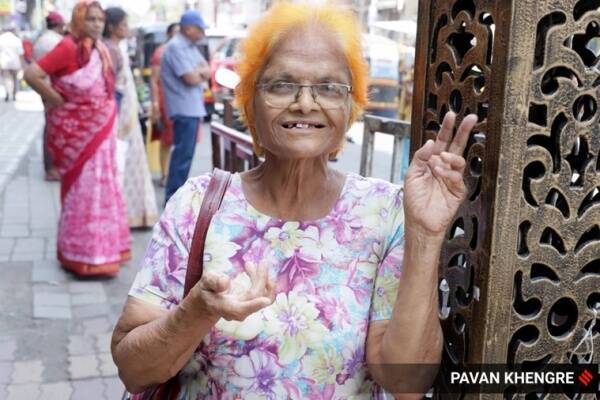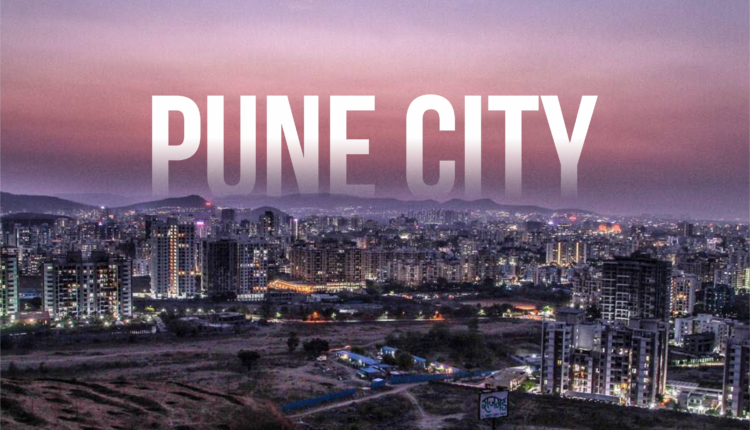Postcards from the Past: When Deccan Queen derailed under pouring rain, one Pune woman stepped out to avert major tragedy
Over 30 years ago, when the iconic Deccan Queen between Pune and Mumbai jumped tracks at the Khandala ghat under pouring rain, the passengers were in a state of panic. But one of them recovered quickly and, showing great presence of mind, stepped out of a derailed bogie and started walking on the flooded tracks to the nearest rail cabin, a few kilometres away. From there, she alerted senior officials in Mumbai and averted a major tragedy by bringing all rail traffic on the route to a halt.
Those memories are still fresh in the mind of that passenger, Harsha Shah, who is now the president of the Railway Pravasi Group, a collective of “rail activists”. Based in Pune, she once used to run a steel business. But now, at the age of 73, Shah is “fully dedicated” to raising her voice against “inadequacies in the railway system”. “Our group has people not only from Pune and Pimpri-Chinchwad but also from different parts of Maharashtra,” she said.
Shah’s attachment with the railways is such that she has been celebrating the birthday of the Deccan Queen, popularly known as ‘Dakkhan Ki Rani’, every year for the past 67 years. “Even during the two years of Covid-19, we did not stop celebrating the Queen’s birthday,” she said.
But her abiding memory of the popular train is from July 13, 1991 – the day of the derailment. “Everyone was in a state of shock. I was not sure how many bogies had jumped tracks and I had no idea about the number of injured. Fortunately, there was none… I also had no clue how far the nearest railway station was. There was not a soul around. I kept walking on the flooded tracks. Finally, I could see the Thakurwadi rail cabin from a distance,” she recalled.
 Shah’s attachment with the railways is such that she has been celebrating the birthday of the Deccan Queen, popularly known as ‘Dakkhan Ki Rani’, every year for the past 67 years. (Express Photo)
Shah’s attachment with the railways is such that she has been celebrating the birthday of the Deccan Queen, popularly known as ‘Dakkhan Ki Rani’, every year for the past 67 years. (Express Photo)
At Thakurwadi, Shah said, the Central Railways had set up a system to check the brakes of trains. “There was only one cabin-wallah there. His job was to jot down information about passing trains and monitor the signal operating system. There was one cabin, one employee and one phone, nothing else. He was not supposed to make any calls so he did not allow me to make one either. But I told him that he should call up the control room even if he loses his job. It was an emergency situation. He relented finally. From there, I called a top official in Mumbai and told him that the train had met with an accident,” she said.
After a few more calls, Shah said, the rail traffic between Pune and Mumbai came to a complete halt. “We helped some people reach the old Pune-Mumbai highway so that they could use the bus service to return home. However, many stayed put on the train. Around 2 pm, another express train managed to reach Khandala Ghat to pick up the stranded passengers. It was a scary episode,” she said.
According to Shah, her tryst with the railways began when she was “just five or six years old”. “That was the first time my uncle took me to the Pune railway station to celebrate the birthday of the Deccan Queen, which had started service on June 1, 1930. I remember, when I was 10-12 years old, the ticket rate was Rs 20 from Pune to Mumbai… now it is Rs 105 (second class),” said Shah, who is fondly called “Mummy” or “Harsha Maushi” by fellow commuters.
Shah said she went on to develop a “sense of attachment” with the Deccan Queen. “My uncle used to deal in the jaggery business and frequently travelled to Mumbai. I insisted that I will accompany him every time. Thus began my friendship with the Deccan Queen,” she said.
This friendship, Shah said, began around 1955. “As I grew up, I formed the Railway Pravasi
Group which was joined by several frequent travellers… The train compartments were a sort of ‘home sweet home’ for us. We celebrated events like Garba, Diwali, Christmas and New Year inside compartments. There were smiles, cheers and songs… The bogies used to come alive. Except for marriages, probably every event was celebrated inside the bogies. Some passengers fell in love inside this train and got married later,” she said.
Shah’s treasure chest of memories on the Deccan Queen, which currently takes three hours and 15 minutes to reach Mumbai from Pune, includes “another scary event”. “This was about 20 years ago. As we reached the Ambernath station on the way to Mumbai, everything came to a standstill. We got off the train to find ourselves among a sea of passengers. No one knew why rail traffic had come to a halt. The then State Minister Dilip Kamble was also travelling by the same train. He soon left by car. We then approached railway officials who told us that some local trains had been set on fire by protesting commuters in Thane. We had no clue what to do. Then, we went back to the officials and suggested that all the express trains stuck there return to Pune. They consulted with higher authorities and accepted our suggestion. And we returned home,” she said.
Then, there were the floods of 2005 when the Mithi river in Mumbai overflowed, bringing all train traffic from that city to a halt. “We were marking the 80th anniversary of the new Pune railway station building. But the floods ruined our celebrations. Still, we quickly gathered and contacted some NGOs and activists. They made food and water available to the stranded commuters. The nightmare lasted three days,” she said.
Besides pursuing issues regarding commuter convenience, facilities and starting of new trains, Shah has also played a key role in the birth of the Pune division of Central Railways.
“Pune was like any other station until 1996. There used to be a regional manager and all nearby areas, including Pune, Solapur and Satara, were under him. Officials from Pune used to frequently visit Mumbai to get sanction for even minor work. We held agitations and protests, met Union ministers, state ministers and top officials, and wrote letters, presented memorandums for years. Finally, the Railway Ministry gave the green signal for the Pune division. Before the division came into existence, there used to be less than 200 trains starting or passing through Pune station. Now, more than 250 trains pass through. The station itself has seen dramatic changes in infrastructure,” she said.
And yet, Shah cannot help but return to her “friend”, the Deccan Queen. “Do you know that it was initially known as Blue Bird Baby? It was only later that it was renamed as ‘Dakkhan Ki Rani’ as it passes through the Deccan plateau,” she said. Now, as June 1 approaches, and the Deccan Queen gets ready to celebrate its 93rd birthday, Shah has already started her preparations. “Pratibha Patil, our ex-President, was the chief guest once. Who will turn up this time? Keep guessing.”


